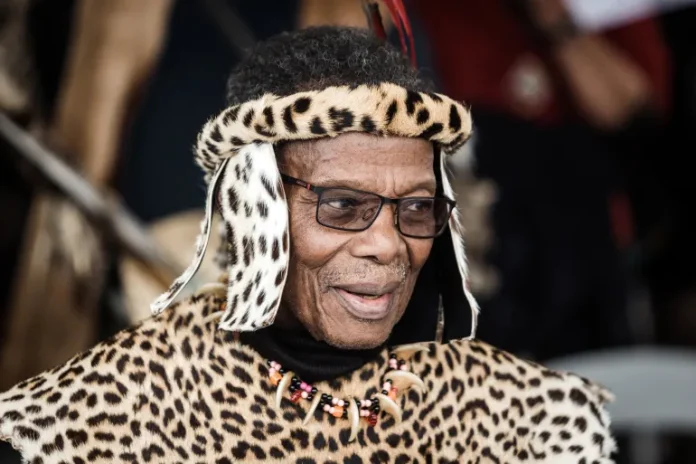South Africa mourns the loss of Mangosuthu Buthelezi, a prominent figure in South African politics and a Zulu prince, who passed away at the age of 95. The presidency announced his death on Saturday.
Buthelezi, the founder of the Inkatha Freedom Party (IFP), served two terms as the minister of home affairs in the post-apartheid government. He played a crucial role in the transition to democracy, reconciling with the governing African National Congress (ANC) party in 1994. His decision to participate in the first post-apartheid election brought peace between the ANC and the IFP, paving the way for the ANC’s victory and the election of Nelson Mandela as South Africa’s first Black president.
The Nelson Mandela Foundation noted the intersections of Buthelezi’s life with Mandela’s and described his legacy as “imposing and complex.” Despite their differences, both leaders embodied reconciliation and the determination to work together.
The Democratic Alliance (DA), South Africa’s main opposition party, hailed Buthelezi as a “great leader” who left an indelible mark on the country’s political landscape.
Buthelezi’s early life was rooted in traditional Zulu culture, where he served as a herdboy. He became a prominent leader, eventually leading the Buthelezi clan and later serving as the acting chief. He championed the rights and welfare of his people.
However, Buthelezi’s political career was marked by controversy and conflict, particularly his rivalry with the ANC. The power struggle between the IFP and the ANC led to violent clashes and instability, resulting in significant casualties and displacement of people.
In exchange for peace, Buthelezi joined the government of national unity as the minister of home affairs. His tenure in this role faced criticism for allegations of corruption and incompetence. Still, he defended the decision as a necessary step to end a low-intensity civil war.
Apart from politics, Buthelezi had a role in the film industry, portraying his great-grandfather King Cetshwayo in the 1964 film “Zulu,” which depicted the defense of Rorke’s Drift by British troops against Zulu fighters. This film not only became iconic but also showcased the image of the Zulu people beyond South Africa.
Mangosuthu Buthelezi’s political career was characterized by longevity, and he continued to lead the IFP until 2019, stepping down at the age of 90. He was known for his lengthy speeches, delivered in both Zulu and English, often lasting for hours.
His political journey began with his involvement in the ANC Youth League during his time at the Black University of Fort Hare, where he was expelled for his political activities.
Buthelezi’s influence extended to KwaZulu, a self-governing homeland based on tribal affiliation, during apartheid, where he held the position of chief minister. This period saw him attempting to balance his criticism of apartheid policies while engaging in the homeland system, a stance that drew both praise and criticism.
Mangosuthu Buthelezi’s passing marks the end of an era in South African politics, leaving behind a legacy shaped by his contributions to reconciliation, his people, and the complex political landscape of his time.



